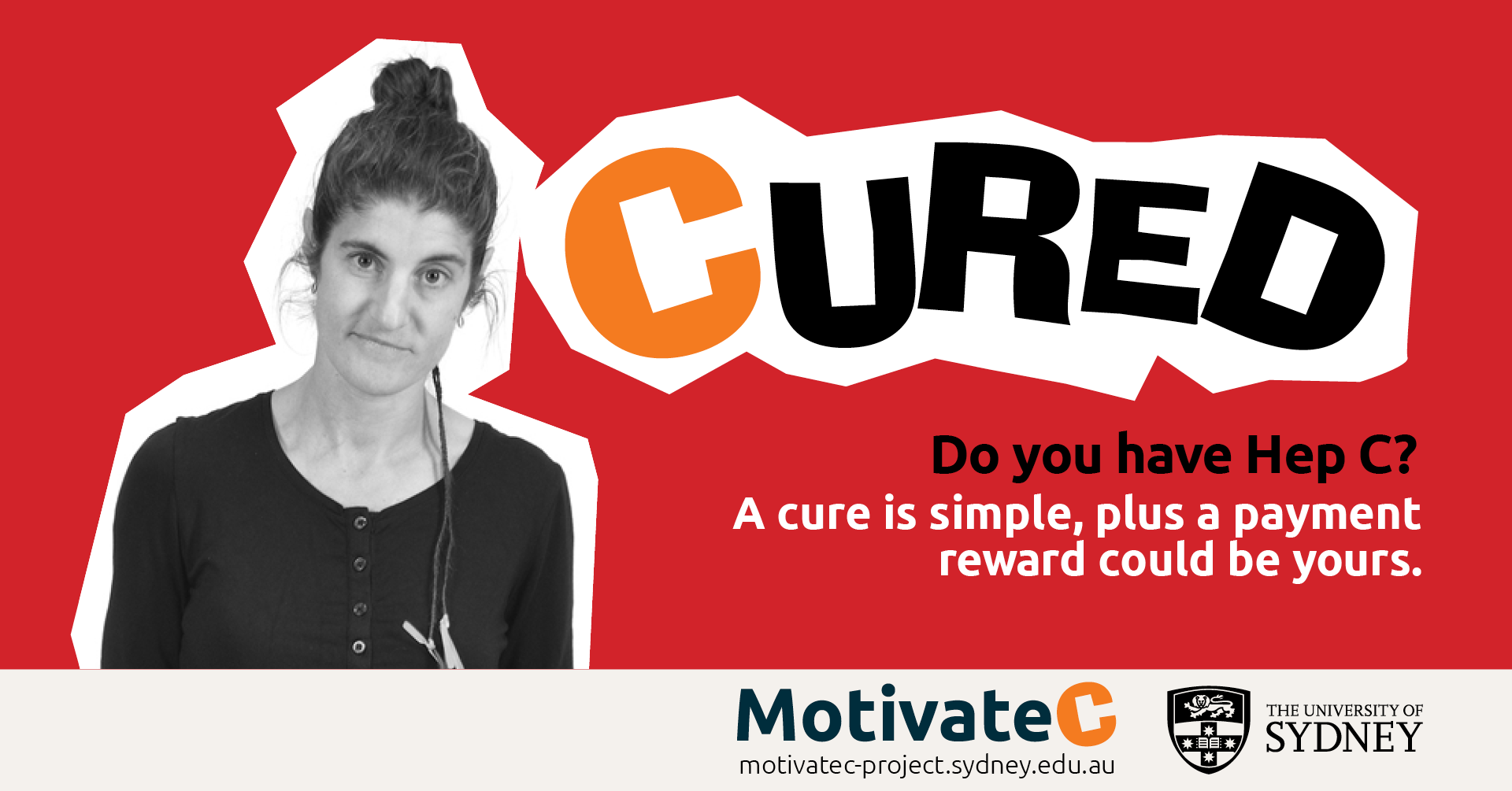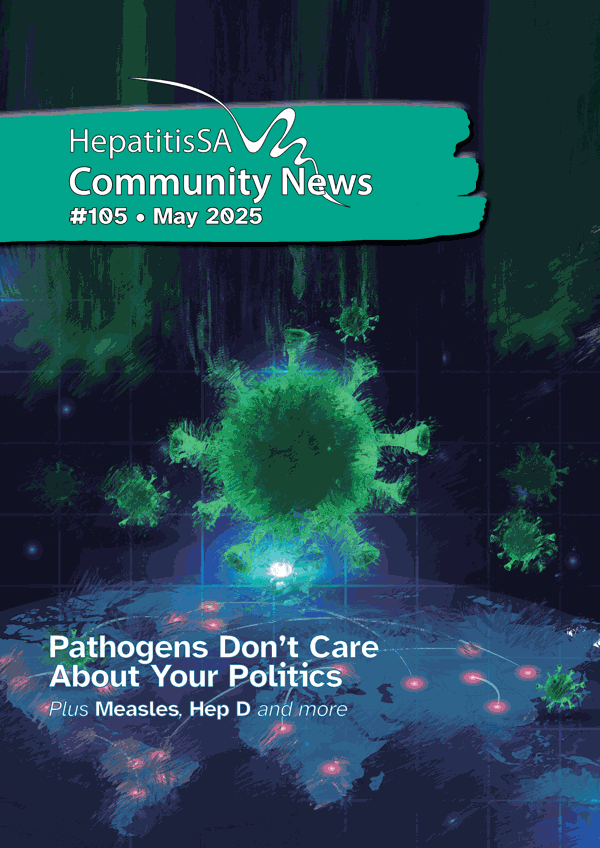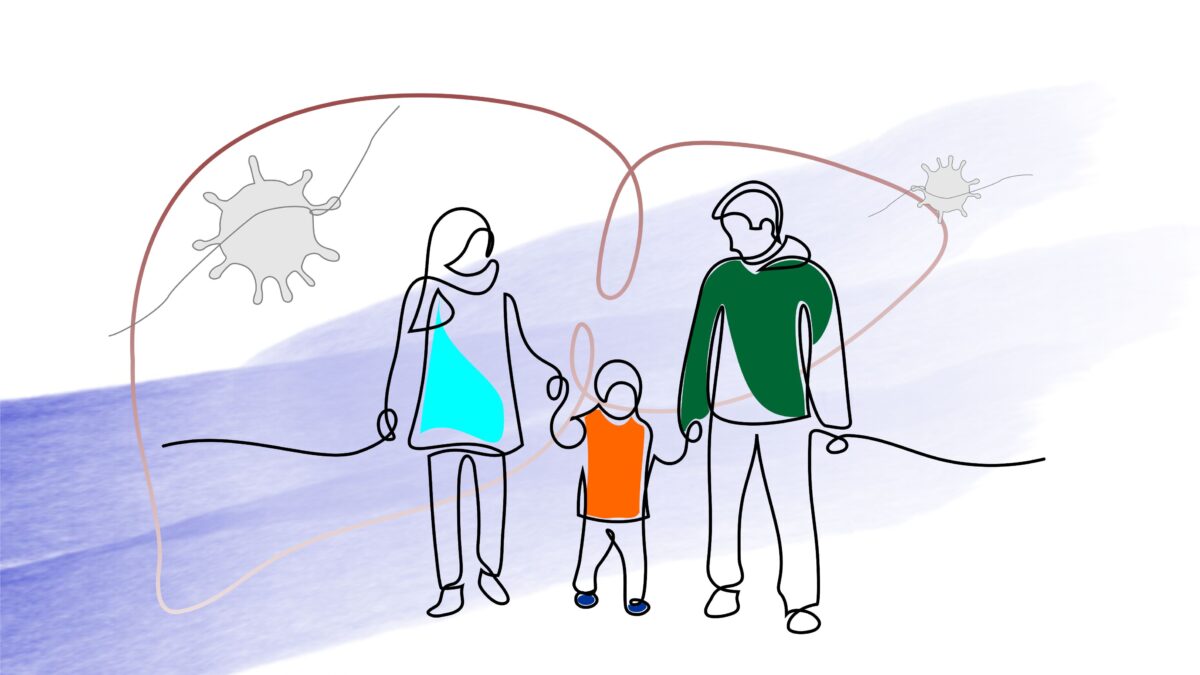An innovative study is underway to explore whether paying someone a cash incentive would motivate them to start hepatitis C treatment, and if it does, what level of payment is right. The study will also look at whether paying GPs to prescribe hepatitis C treatment will increase treatment initiation rates.
Most people with hepatitis C can be cured in as little as eight weeks with a course of tablets. Despite this, many Australians with hepatitis C are yet to undertake the treatment and be cured. The main target of the project are people who know they have a current hepatitis C infection and have not started treatment.
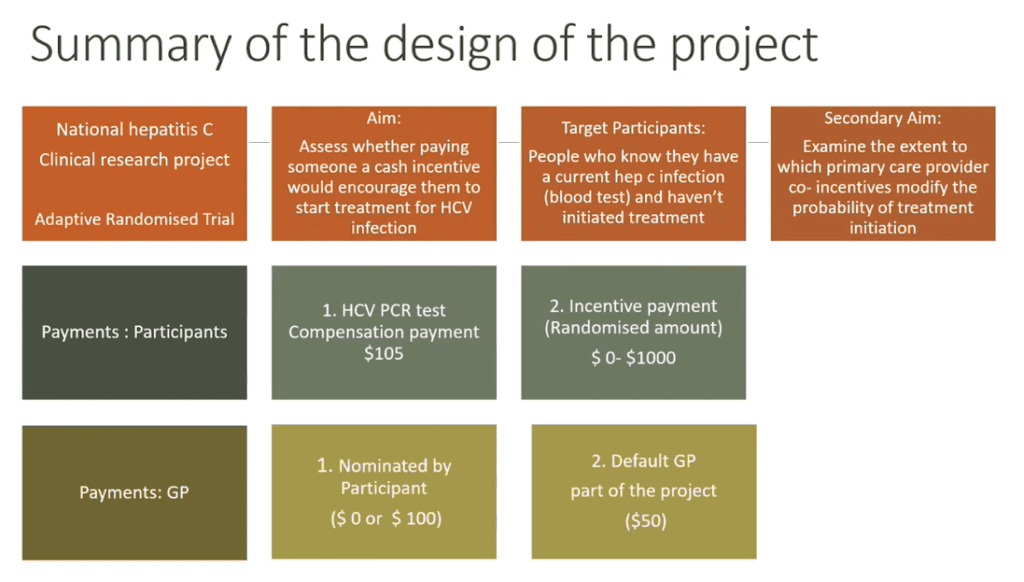
Participants are required to re-test for hepatitis C and must receive a positive result before being referred for treatment. All participants will be compensated $105 for taking the test.
In addition, participants may be chosen to receive a reward payment for commencing hepatitis C treatment. This randomly assigned cash reward will range from smaller amounts up to $1000. The amount of cash reward offered will be randomly varied, with the variations providing data on whether there is a motivation “price point” – the level is enough to move participants to fill a prescription and start treatment. All patients who complete treatment will receive a $75 compensation on receiving a sustained virological response (SVR) at four weeks post treatment. It is unclear if there will be follow up with participants who re-tested positive in the project but did not go on to treatment.
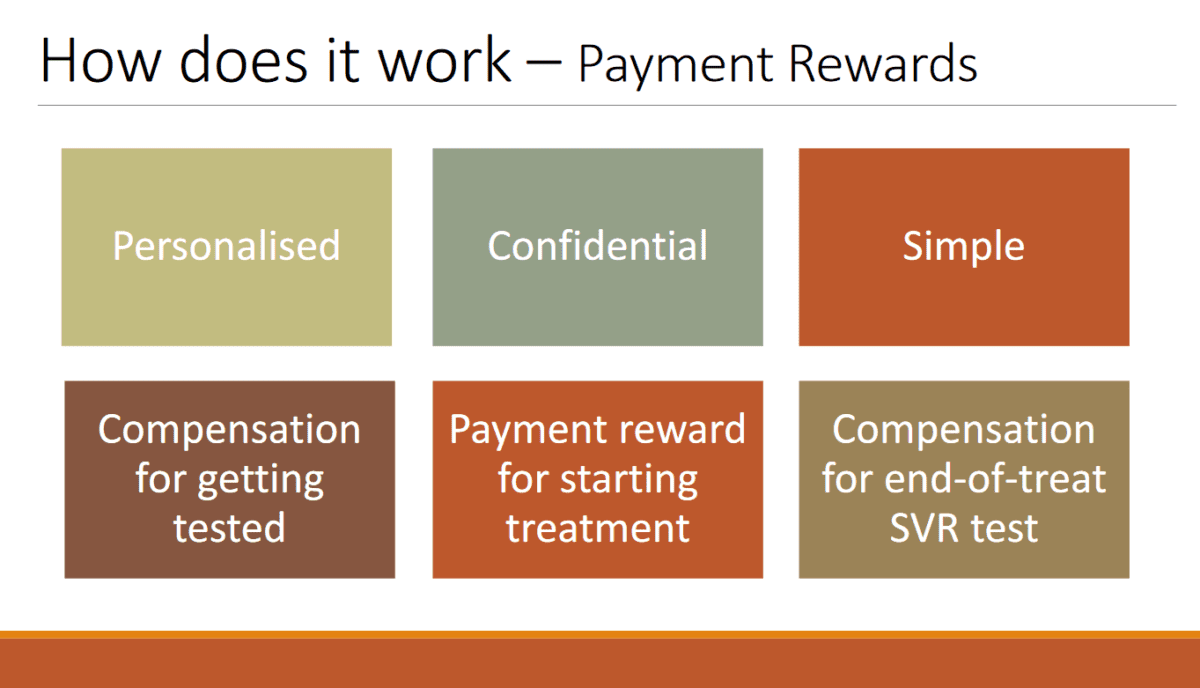
The primary healthcare prescriber may also be compensated. The GP “co-incentive” amount will depend on whether they are the participant’s own GP or are a “default GP” who is already part of the project.
People who have a positive hepatitis C result at least six months ago, but haven’t been on treatment, can sign up for the Motivate C project. Adults who believe they have hepatitis C and who haven’t been tested for the last four weeks are also eligible to participate.
Participants need a mobile phone to take part in this study as the whole process is SMS-based. Those who are interested will need to self-register via their phone. They will be allocated a navigator who will guide them through the process. The process is personalised and confidential.
The navigator, who is trained in clinical and consenting practices, will also act as interface between the project and the participant-nominated prescriber. Participants who don’t nominate their own prescriber will be referred to one by the project.
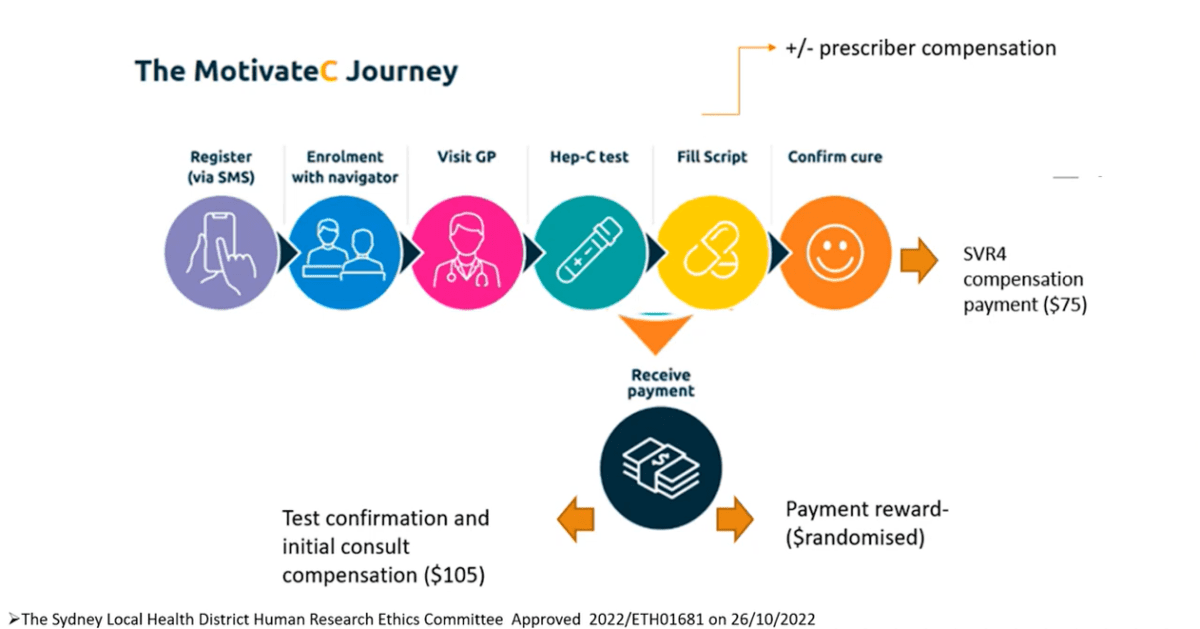
The project hopes to recruit participants through GPs and nurse practitioners who, they say, are “critical to the success” of the Motivate C project. Project organisers are urging healthcare professionals to review their patient records to identify people who have tested positive for hepatitis C but have not gone on treatment, let those patients know about Motivate C, and encourage them to sign up for the study.
Primary care providers are encouraged to refer the following people to the Motivate C project:
- people at risk of hepatitis C infection and not connected to care,
- people who are reluctant to test for hepatitis C due to stigma,
- people who prefer the anonymity of online/telephone option.
The University of Sydney is leading this national project in collaboration with researchers, healthcare providers and GP experts within the hepatitis C field. Funding for the project is provided by the Australian Government’s Medical Research Future Fund. The Motivate C study is approved by the Sydney Local Health District Human Research Ethics Committee (2022/ETH01681) and is now recruiting participants.
Last updated 3 July 2024
More from:
Enjoyed this article? Subscribe to be notified whenever we publish new stories.
Subscribe for Updates
